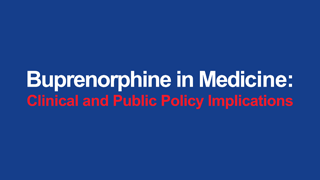Effect of different doses of remifentanil on stress response during laparoscopic cholecystectomy
DOI:
https://doi.org/10.5055/jom.2019.0485Keywords:
remifentanil, cortisol, prolactin, growth hormone, adrenocorticotropic hormone, stress, general anesthesiaAbstract
Objectives: An adequate perioperative analgesia reduces neuroendocrine stress response and postoperative complications. Opioids are the most effective parenteral drugs to control pain and stress response.
Design: This is a prospective randomized double-blinded controlled study.
Setting: Institutional tertiary level.
Patients, participants: Fifty patients underwent general anesthesia with desflurane for laparoscopic cholecystectomy.
Main outcome measures: To compare two different doses of remifentanil (0.15 mcg/kg/min or 0.3 mcg/kg/min) in reducing markers of stress. Perioperative stress was assessed through the dosage of adrenocorticotropic hormone (ACTH), cortisol, growth hormone (GH), and prolactin (PRL). Three venous blood samples were collected from patients: before transferring the patient to the operating room (Time 0), at the trocar insertion (Time 1), and 1 hour after the end of the surgery (Time 2).
Results: Hemodynamic parameters showed no differences between the two groups. The authors observed an increase of GH and PRL in both groups at trocar insertion (Time 1) (p = 0.473 and 0.754, respectively). ACTH and cortisol showed a decrease at Time 1 and an increase after surgery (p = 0.586). The modification of stress parameters levels showed no significant differences between the two groups.
Conclusions: The results of our study showed that a lower dose of remifentanil is equally effective in controlling stress hormones during laparoscopic cholecystectomy.
References
Jakeways MS, Mitchell V, Hashim IA, et al.: Metabolic and inflammatory responses after open or laparoscopic cholecystectomy. Br J Surg. 1994; 81: 127-131.
Marana E, Scambia G, Maussier ML, et al.: Neuroendocrine stress response in patients undergoing benign ovarian cyst surgery by laparoscopy, minilaparotomy, and laparotomy. J Am Assoc Gynecol Laparosc. 2003; 10(2): 159-165.
Miller DB, O'Calligan JP: Neuroendocrine aspects of the response to stress. Metabolism. 2002; 51: S5-S10.
Adas G, Kemik A, Adas M, et al.: Metabolic and inflammatory responses after ERCP. Int J Biomed Sci. 2013; 9(4): 237-242.
Desborough JP: The stress response to trauma and surgery. Br J Anaesth. 2000; 85(1): 109-117.
Karayiannakis AJ, Makri GG, Mantzioka A, et al.: Systemic stress response after laparoscopic or open cholecystectomy: A randomized trial. Br J Surg. 1997; 84: 467-471.
Hall G, Lacoumenta S, Hart G, et al.: Site of action of fentanyl in inhibiting the pituitary-adrenal response to surgery in man. Br J Anaesth. 1990; 65: 251-253.
Draskovic B, Stanic D, Uram-Benka A, et al.: Stress indicators during general anesthesia with opioid analgesics in children. Turk J Med Sci. 2014; 44(6): 1095-1102.
Ledowski T, Bein B, Hanss R, et al.: Neuroendocrine stress response and heart rate variability: A comparison of total intravenous versus balanced anesthesia. Anesth Analg. 2005; 101(6): 1700-1705.
Sidiroupoulu I, Tsaousi GG, Pourzitaki C, et al.: Impact of anesthetic technique on the stress response elicited by laparoscopic cholecystectomy: A randomized trial. J Anesth. 2016; 30: 522-525.
Vittimberga JF, Foley PD, Meyers CW, et al.: Laparoscopic surgery and the systemic immune response. Ann Surg. 1998; 227: 326-334.
Junuzuvic D, Celic-Spuzic E, Hasanbegovic M: The correlation between type of anesthesia and hormones levels during and after transvescical prostatectomy. Acta Inform Med. 2011; 19: 216-219.
Liley DT, Sinclair NC, Lipping T, et al.: Propofol and remifentanil differentially modulate frontal electroencephalographic activity. Anesthesiology. 2010; 113(2): 292-304.
Weale NK, Rogers CA, Cooper R, et al.: Effect of remifentanil infusion rate on stress response to the pre-bypass phase of pediatric cardiac surgery. Br J Anaesth. 2004; 92: 187-194.
Shinoda T, Murakami W, Takamichi Y, et al.: Effect of remifentanil infusion rate on stress response in orthopedic surgery using a tourniquet application. BMC Anesthesiol. 2013; 13: 14. doi:10.1186/1471-2253-13-14. eCollection 2013.
Chen X, Thee C, Gruenewald M, et al.: Correlation of surgical pleth index with stress hormones during propofol-remifentanil anaesthesia. ScientificWorldJournal. 2012; 2012: 879158. doi:10.1100/2012/879158.
Hardman J, Limbird L: Goodman and Gilman’s The Pharmacological Basis of Therapeutics. 9th ed. Columbus, OH: McGraw Hill, 1996.
Myre K, Raeder J, Rostrup M, et al.: Catecholamine release during laparoscopic fundoplication with high and low doses of remifentanil. Acta Anaesthesiol Scand. 2003; 47(3): 267-273.
Watanabe K, Kashiwagi K, Kamiyama T, et al.: High dose remifentanil suppresses stress response associated with pneumoperitoneum during laparoscopic colectomy. J Anaesth. 2014; 28: 334-340.
Published
How to Cite
Issue
Section
License
Copyright 2005-2025, Weston Medical Publishing, LLC and Journal of Opioid Management. All Rights Reserved.










